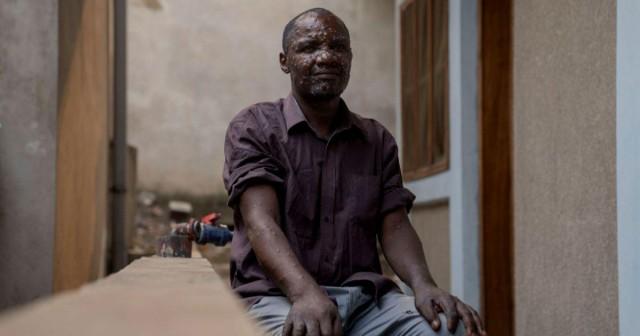What is Mpox? Everything you need to know about the virus that is now global concern
With a new case of Mpox, formerly known as the Monkeypox, detected in the Philippines, one question arises: how do we protect ourselves against it?
The contagious disease has killed hundreds of people in Congo and has been spreading to neighboring countries, prompting the World Health Organization (WHO) to declare a global public health emergency.
WHO first declared Mpox a public health emergency of international concern in 2022 and lifted it in May 2023.
Now that it has become a global public health concern again, here are some things we need to know about Mpox.
What is Mpox?
According to a "Need to Know," Mpox is a disease caused by the monkeypox virus. A zoonotic disease, Mpox is transmitted to humans from animals.
Mpox was first recorded among monkeys in 1958 and the first transmission of the virus to humans was recorded in 1970.
According to the Centers for Disease Control and Prevention (CDC), the virus is part of the same family as the virus that causes smallpox. However, it is not related to Chickenpox.
There are two types of Mpox: Clade I and Clade II. Clade I, which originated in Central Africa, is deadlier and can cause more severe illness.
Meanwhile, Clade II, which is endemic in West Africa, is the type of Mpox that caused the global outbreak in 2022. It is less severe, with more than 99.9% of those infected with Clade II recovering.

CDC said that this disease can be acquired through direct contact with body fluids or skin-to-skin contact, including touching the rash or hives of a person who has it.
They added that both clades can spread through "direct contact with infected animals," "close contact such as intimate or sexual contact with a person with Mpox," and by touching contaminated materials.
What are the symptoms?
According to WHO, symptoms of Mpox include a skin rash or mucosal lesions, accompanied by fever, headache, muscle aches, back pain, low energy, and swollen lymph nodes.
"People with Mpox often get a rash, along with other symptoms. The rash will go through several stages, including scabs, before healing," CDC said.
Patients suffering from Mpox undergo an incubation period that can last from three to 17 days. During this period, the person with Mpox can be asymptomatic or may not feel any symptoms, it added.
These symptoms are similar to the symptoms manifested by the new case detected in the country, which included fever and followed by rash on the face, back, nape, trunk, groin, as well as palms and soles four days later.
How can it be prevented?
Preventions against Mpox require limiting human contact, especially if one is positive for the infection.
DOH Secretary Ted Herbosa said that Mpox-positive individuals should isolate themselves to avoid the spread of the virus. He also said it is important to wash hands always.
Additionally, WHO recommends covering wounds and wearing a medical mask when interacting with other people. They also suggested using condoms during sex, as it will help reduce the risk of getting the infection, although it will not prevent spread from skin-to-skin or mouth-to-skin contact.
Is there a treatment for Mpox?
As of today, there is no treatment for Mpox, but there are vaccines to protect you against the virus. Unfortunately, these vaccines are not yet available in the Philippines.
Meanwhile, Herbosa said that patients with Mpox will be given supportive care where their symptoms will be treated.
"Kapag nilalagnat sila, bibigyan sila ng paracetamol. Kung may makati sa kanila, anti-kati at aalagan 'yung mga lesions nila," Herbosa said.
("When cases have a fever, they will be given paracetamol. If they itch, they will be given anti-itch ointment, and doctors will treat their lesions.")
Doctors can also prescribe antiviral medications, especially in cases with comorbid conditions.
—Jade Veronique Yap/MGP, GMA Integrated News




